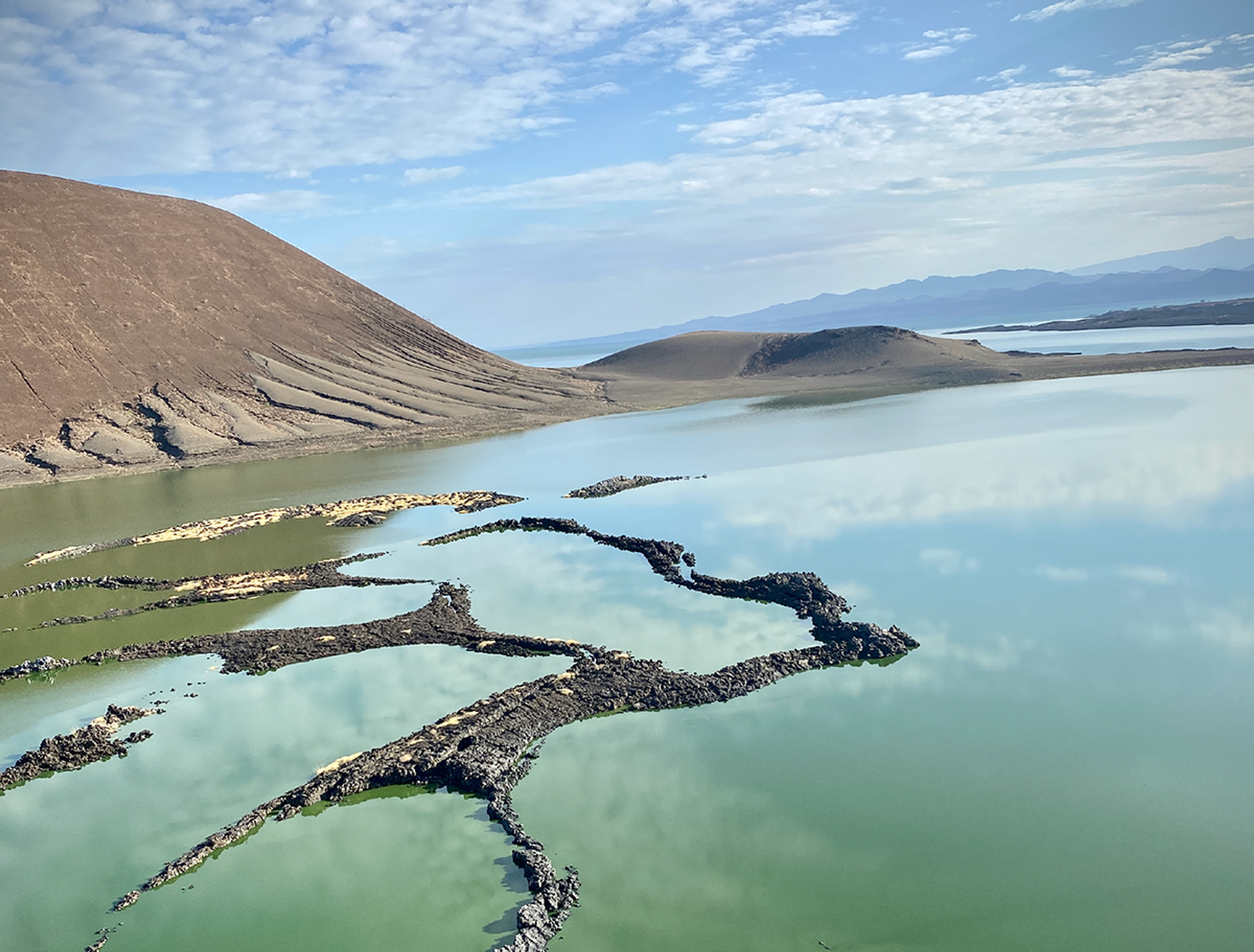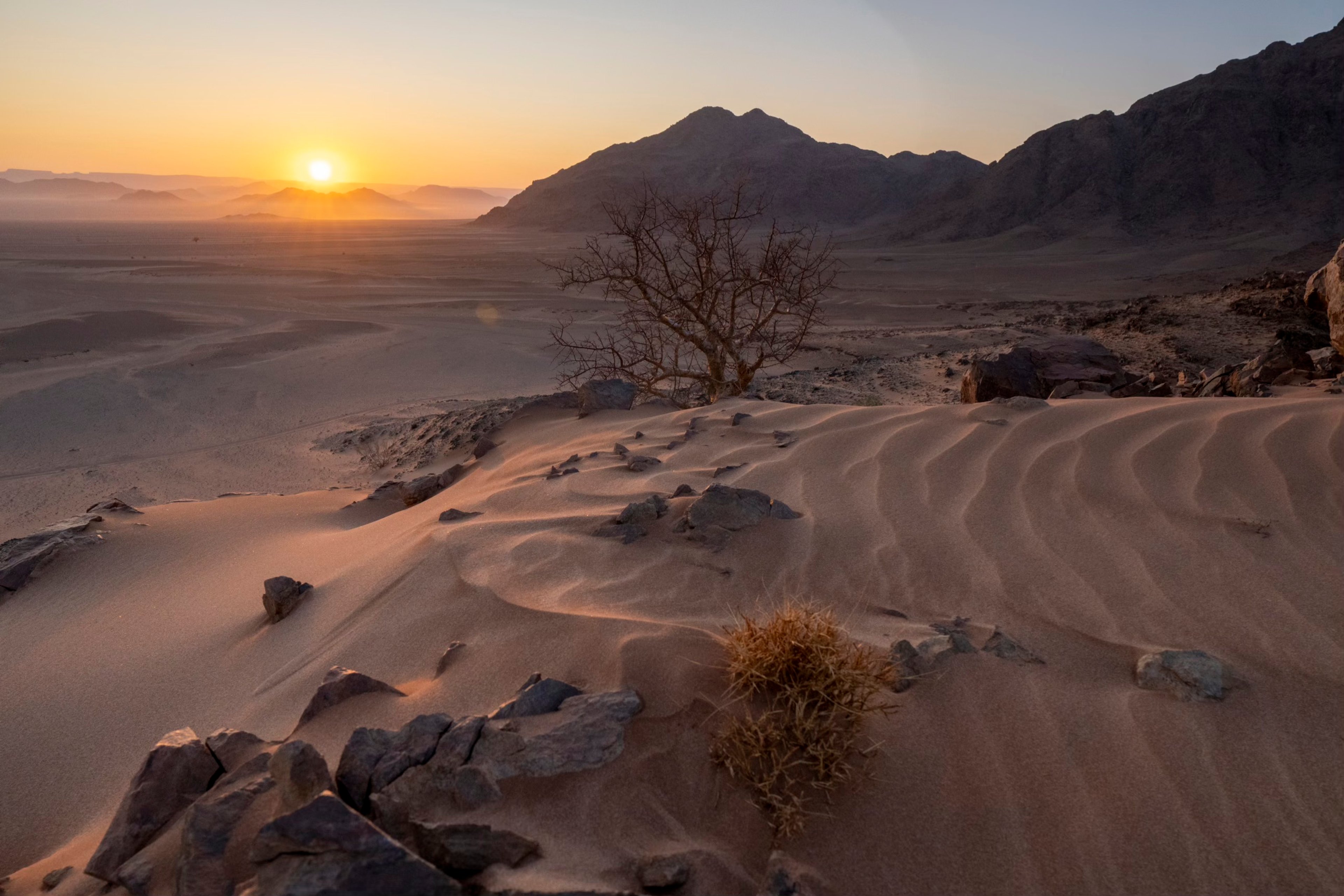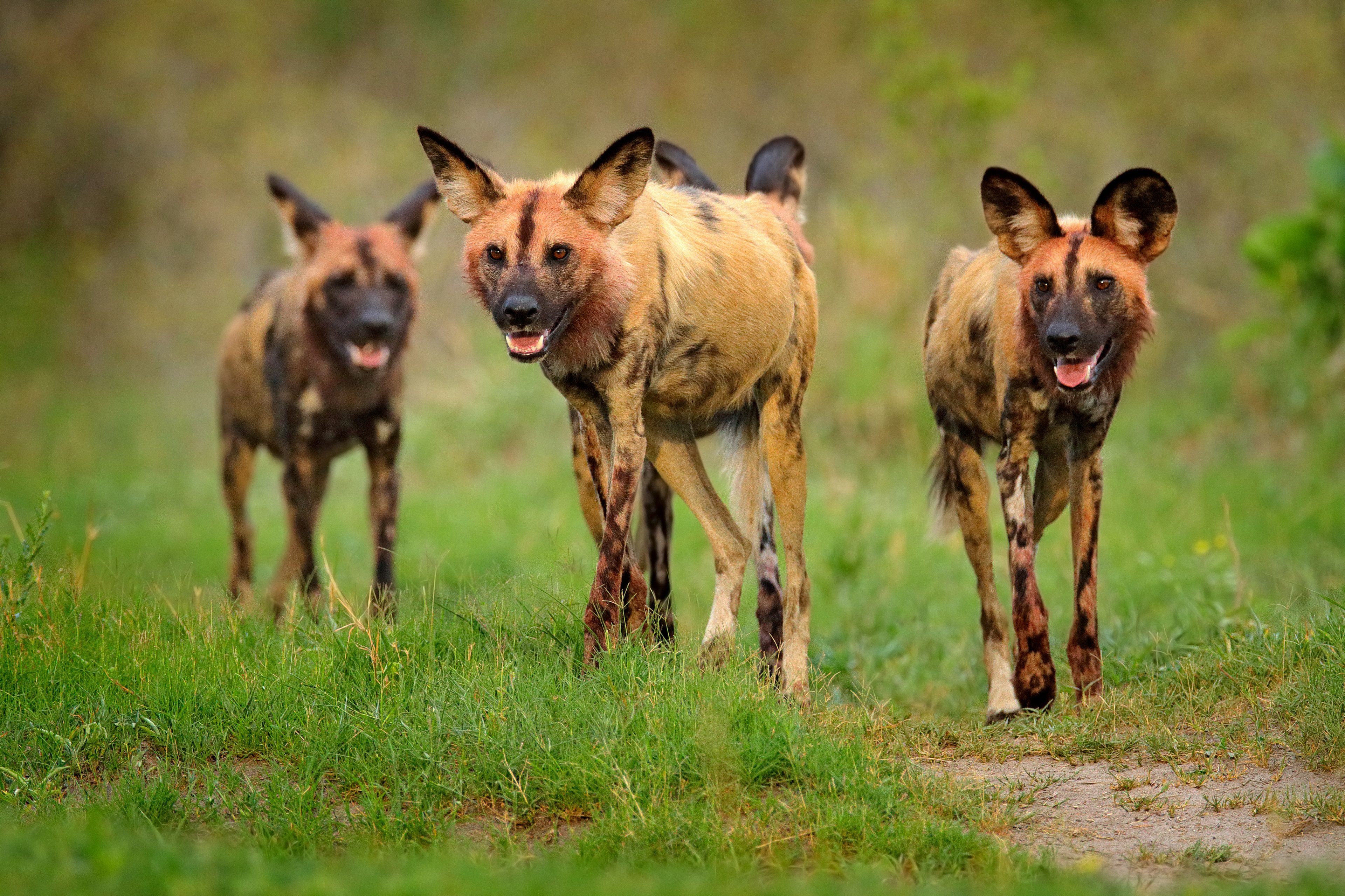For 20 years, I’ve been traveling between New York and Africa’s wilderness areas. My quest to find the freedom, quiet and solitude that I can share with our guests, has taken me to some of the most remote parts of the continent of my birth. I’d always assumed that the attraction in me was a yearning for the places that nurtured me as a child. The Africa I know, love and want to share. Then last year, I heard an interview with acoustic ecologist Gordon Hempton. Hearing him talk about how we take in the world through our ears made me realize that the comfort I find in these places must be wrapped up in a sonic memory. And that our modern world’s insistence on seeing the world ignores our most critical sense.
Sounds of silence
Gordon’s impassioned motivation for us to hear the world more clearly really struck a chord, in that I realized that the comfort I find in wild spaces harks back to an elemental sensory skill that we as humans have all but forgotten. As soon as I started to consider real quiet – not as an absence of sound but an absence of noise – I realized how much man-made noise surrounds me on a daily basis. I began to question whether I even knew what silence sounds like.
From the first sound we hear when we are born to the last before we die – hearing is the last of our senses to go – we are born to listen. “Our ears never sleep,” explains Gordon. “In the animal kingdom, there are species (rhinos and elephants, for example) with very poor eyesight, as the ability to see is not essential for survival. Sound, however, is so important that every higher vertebrate species has the ability to hear,” he explains. “Why? Because animals need to listen to survive.” It’s a skill we’ve lost, along with the ability to discern between essential listening and what serves only to distract us.
Becoming better listeners
The noise of life proved impossible to ignore when I first tried to listen for quiet. My eureka moment happened when I stopped listening for sounds and started listening to the place I was in. This led to the realization that in the absence of gratuitous noise, another layer of sound connected to place is revealed. From the call of giant eagle owls pre-dawn, to the dance of the wind through trees, or the roll of pebbles on the beach, these sounds restore my soul in ways I still can’t articulate.
“If a person wants to increase their ability to understand another person, they should start out by listening to nature,” says Gordon. “Because you’re totally uninvested in the outcome of nature. Isn’t it wonderful that when a bird sings we hear it as music? The bird doesn’t sing for our benefit, so there’s a lot of joy in that listening.” I love that because I know it to be true.
Just last week I revisited Lake Turkana, the largest permanent desert lake in the world, located in Kenya’s farthest northern reaches. Surrounded by arid, barren, windswept land, with no freshwater or roads, it is about as remote as you can get. What has always made Lake Turkana so impressive for me is its silence, the kind that never fails to envelop me in a cloak of contemplation and contentment.
An emotional bond to nature
As I sat on a rocky promontory with my coffee, I tried to focus on the natural soundscape of this place. It’s so remote that we’d flown here by helicopter. That intrusion was top of mind, not to mention the presence of Lake Turkana Wind Power Project, a wind farm comprising some 365 turbines. Both are examples of the kind of human interference that Gordon believes is threatening wilderness areas around the world. And yet Lake Turkana is a pithy example, for it’s a vastly untouched place in comparison to other urban areas where the natural soundscape is wholly obliterated by man-made sounds.
“As a composition of biological utterances like birdcalls, geophysical commotions like wind and running water, and anthropogenic noises like motors, soundscapes are an acoustic reflection of the patterns and processes of the landscape that surround us,” says ecologist Dr Bryan C. Pijanowski, who travels the world to discover how nature works through the lens of sound and whether those environments are healthy or not. “But more critically, sound provides us with a sense of place and an emotional bond with nature that is fast unraveling.”
A half hour of absorbing all the beauty, complexity and fragility of Lake Turkana and I found myself feeling protective of it and others like it. As Gordon said: “A quiet place is the think tank of the soul. For when we truly listen, we make ourselves vulnerable as we have to anticipate that we might become changed by what we hear.”
Time spent in nature will most definitely do that. My hope is that we can all learn to be more sensitive to sound, the sound we create and that which we absorb. It’s time to turn our volume down and preserve this endangered species – silence.




